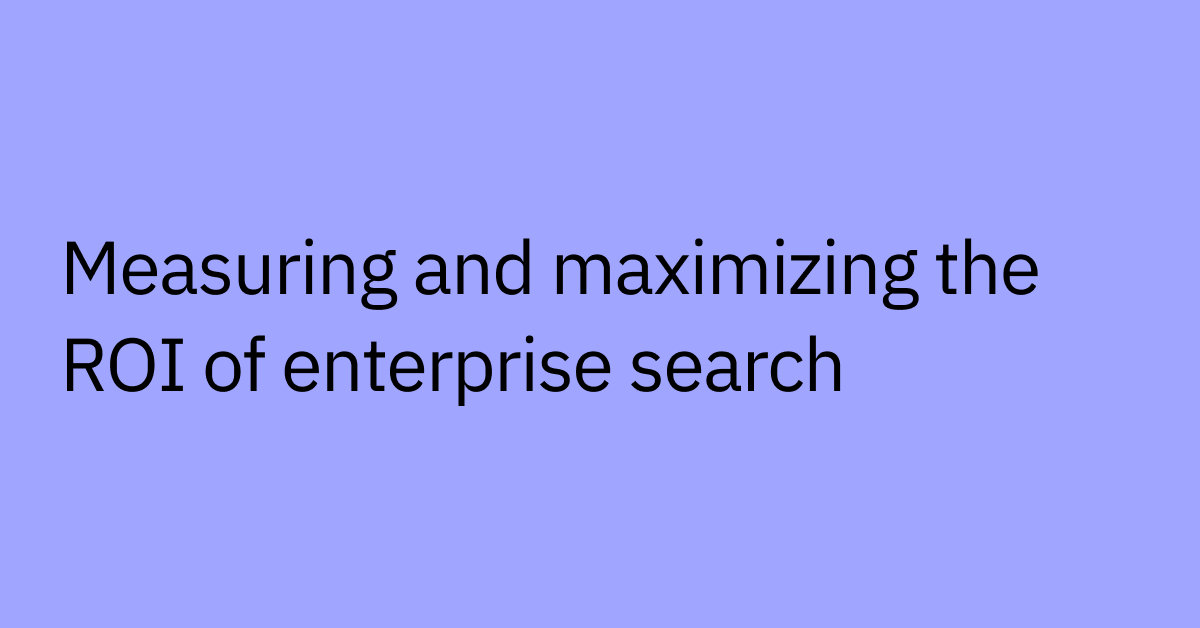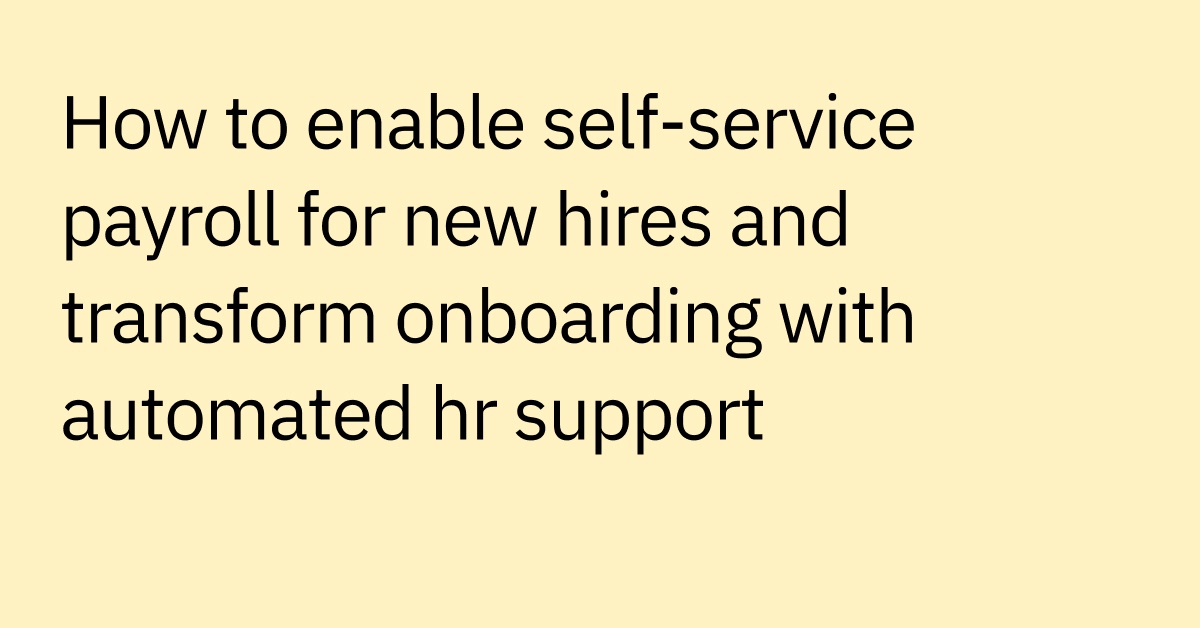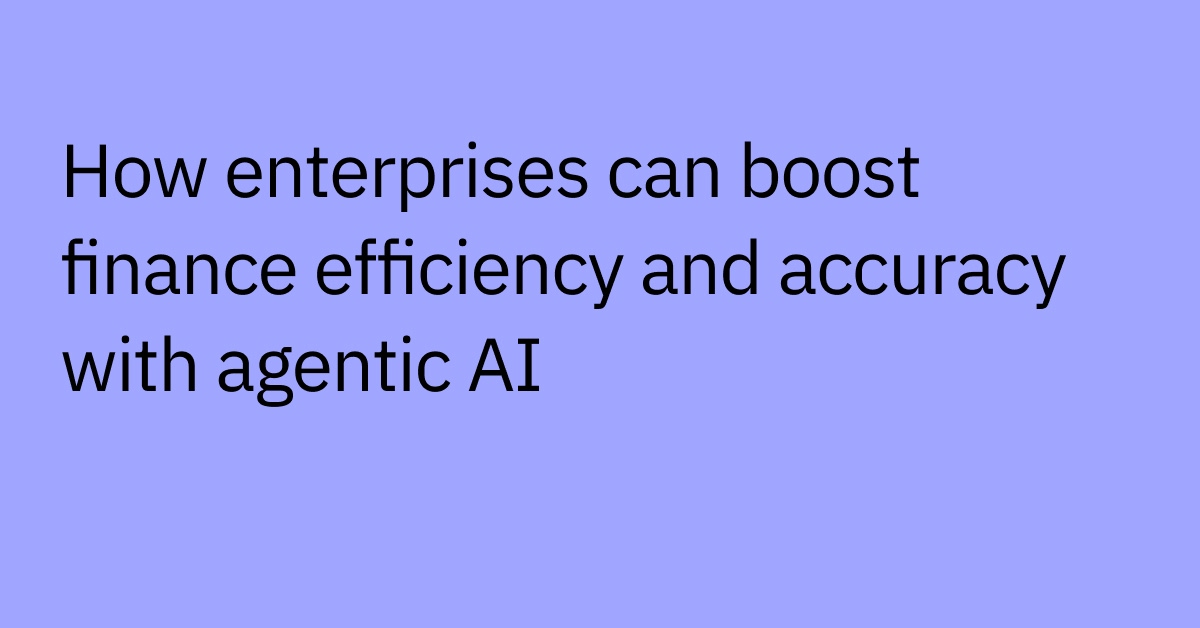Table of contents
Highlights
- AI agents go beyond traditional automation. Unlike rule-based bots or static workflows, advanced AI agents are designed to understand context, make decisions, and execute multi-step processes across enterprise systems without needing perfect input conditions.
- There are three main approaches to AI agent development. Enterprises can choose between AI agent development companies (full-service, complex projects), AI agent builders (low-code/no-code tools for faster deployment), or AI agent frameworks (technical toolkits for highly customized solutions).
- In-house development is gaining traction. With the rise of low-code and no-code platforms, organizations can build agents internally for better control, security, and rapid iteration, reducing dependence on external vendors.
- Top tools offer varying capabilities. Platforms like Moveworks Agent Studio, OpenAI GPTs, Google Vertex AI Agent Builder, LangChain, and AutoGen differ in ease of use, integration depth, and flexibility — making the right choice dependent on technical expertise, customization needs, and ecosystem alignment.
- Moveworks positions itself as an enterprise leader. Moveworks Agent Studio combines low-code development, enterprise-grade security, multilingual support, and an agentic reasoning engine to unify automation across departments via a single, user-friendly AI assistant.
Navigating the world of AI agent development can often feel like trying to build a sophisticated clock with a box of assorted gears and no instruction manual. Each gear—from data quality and scalability to safety and integration—is crucial, but getting them to work together seamlessly is the real challenge.
Fortunately, AI agent development platforms are emerging as the instruction manual and toolkit all in one.
These platforms address the top problems you face: overcoming technical and practical hurdles, ensuring reliability, safety, and trust, and managing integration and cost. Instead of sourcing dozens of disparate tools and teams, these platforms offer a unified environment to solve these core issues, helping to make the journey from a brilliant idea to a functional, deployed AI agent a reality.
What are AI agent development tools?
AI agent development platforms simplify building, deploying, and scaling custom AI agents. Ultimately, they aim to get rid of the need for extensive coding and expertise by providing the AI tools and infrastructure needed to create intelligent agents quickly.
The alternatives (building AI agents from scratch, using frameworks) can be time-consuming, technically challenging, and costly. It takes highly specialized skillsets in machine learning, natural language processing (NLP), and enterprise integration. Most organizations simply don't have the bandwidth, time, or (expensive) expertise to tackle this level of custom development while managing day-to-day operations.
Development/building platforms help solve this by offering pre-built components, easy to use interfaces, and enterprise-ready integrations that can accelerate the entire process from concept to deployment.
Differences between AI agent development companies, AI agent builders, and AI agent frameworks
Before looking into specific solutions, it's helpful to cover the three main approaches to AI agent development, as each one serves different organizational needs and technical capabilities.
AI agent development company
An AI agent development company is a business or service provider that specializes in designing, building, and deploying AI agents for clients. These companies offer end-to-end solutions, including:
- Consulting
- Custom development
- Integration
- Deployment
- Ongoing support
These "builder" companies typically use their own tools, builders, or frameworks, and may leverage third-party platforms to deliver solutions built specifically for your business needs.
Development companies are good at handling complex, large-scale, or customized projects, especially for organizations that lack in-house expertise.
Ideal for: Multi-system automation across platforms like Workday and SAP or in highly regulated industries that require strict compliance and security.
Challenges: Not ideal for simpler automations, tight budgets, quick projects, or teams with strong AI expertise that need tools over services.
AI agent builder
An AI agent builder is a software tool or platform that allows users to create, configure, and deploy AI agents, often with low-code or no-code options. These builders provide user interfaces and feature sets for defining agent actions, connecting to data sources, and setting up workflows.
Builders are typically designed for developers or business users looking to create custom agents without deep programming knowledge.
Ideal for: Quickly creating and deploying agents for common, surface-level workflows, allowing for rapid prototyping and providing non-technical staff with low-code solutions.
Challenges: Limited when it comes to highly specialized automations, custom AI development, or integrating with more complex legacy systems that don’t play as nicely as newer applications.
AI agent framework
An AI agent framework is basically a toolkit for building AI agents. It gives you all the essential building blocks, like reasoning engines, ways to add new features, and tools to make everything work together smoothly. This makes it easy to develop advanced, scalable, and compatible AI agents with enhanced functionality.
Ideal for: These types of frameworks are typically used by software engineers for advanced or highly customized use cases that require more technical control and oversight.
Challenges: More difficult to scale, as managing numerous agents means managing increasing numbers of potential problems, like coordinating agents, handling errors, and ensuring security compliance.
Hybrid AI agent development
Hybrid models are also emerging, with some platforms that offer both low-code builders and developer frameworks. Additionally, there’s the increasing role of orchestration layers, which enable developers to gain granular control over the agent's behavior.
Instead of being locked into a single model's capabilities, these layers allow for the dynamic routing of requests to different AI tools and services and creating agents that can handle a wider range of tasks
Ideal for: Complex, dynamic environments that require a blend of predefined rules and adaptive learning.
Challenges: Can be cumbersome due to the difficulty of integrating disparate systems, managing complex interactions, and ensuring a seamless balance between reactive and deliberative components.
When should you partner with an AI agent development company versus using an AI agent builder?
Partner with an AI agent development company when you need deep expertise, custom-built solutions, and end-to-end delivery. This approach makes sense for organizations that lack in-house resources or need a highly specialized agent built quickly.
A development company can accelerate the initial build, provide technical knowledge, and handle complex integrations. However, outsourcing often comes with trade-offs: less control over updates, slower response times for changes, higher ongoing costs, and potential vendor lock-in that limits future flexibility.
Choose an AI agent builder when you want more control, flexibility, and long-term scalability. Building in-house using low-code or no-code platforms gives IT leaders direct oversight of data, faster iteration cycles, and better alignment with existing systems.
Today’s tools significantly lower the technical barrier, enabling IT teams (and even business users) to create sophisticated agents without heavy programming expertise. This makes agent builders the ideal choice for enterprises that need rapid experimentation, seamless integration with existing workflows, and the ability to scale AI agent development across multiple departments.
5 top AI agent development tools and platforms
Platform | Top Features | Pricing |
Moveworks Agent Studio | Low-code development, enterprise integrations, agentic reasoning engine | Contact for enterprise pricing |
OpenAI GPTs | Custom GPT models, natural language interface, OpenAI ecosystem integration | $20 per user per month (ChatGPT Team) |
Google Vertex AI Agent Builder | Google Cloud integration, pre-built templates, enterprise security | Pay-per-use based on API calls |
LangChain | Open-source framework, extensive integrations, developer flexibility | Free (open source) + cloud hosting costs |
AutoGen | Multi-agent workflows, Microsoft integration, conversational AI | Free (open source) |
1. Moveworks Agent Studio — Low-code AI agents for secure enterprise automation
Moveworks Agent Studio provides an in-depth platform for building custom AI agents without extensive coding requirements. The platform is designed specifically for enterprises that need to automate complex workflows while maintaining security and compliance standards.
Agent Studio distinguishes itself through its agentic reasoning engine, which lets agents understand context, plan multi-step actions, and execute tasks across enterprise systems on their own. This goes beyond traditional automation to deliver intelligent decision-making capabilities.
Key platform features:
- Low-code development environment that lets business users and IT teams build agents quickly without extensive programming knowledge
- Pre-built enterprise integrations with platforms like ServiceNow, Workday, Slack, Microsoft Teams, and a multitude of other business applications
- Agentic reasoning engine that powers intelligent planning, decision-making, and multi-step task execution, without the need for human involvement (unless escalated)
- Enterprise-grade security and compliance with granular permission controls, data protection, and regulatory compliance features
- Multilingual support across 100+ languages for global workforce automation
The solution also addresses the fundamental challenge of app sprawl by providing a unified platform where employees can interact with all their enterprise systems through a single AI assistant. This approach helps reduce training requirements, increases adoption, and delivers measurable productivity gains across the organization.
What sets it apart:
Moveworks Agent Studio stands out as a top choice for enterprises because it combines rapid development capabilities with enterprise-grade security and scalability. The platform's reasoning engine helps agents to handle complex, unstructured workflows that traditional automation tools struggle to manage.
Discover how Moveworks Agent Studio can transform your enterprise automation strategy.
2. OpenAI GPTs — Custom generative AI agents powered by GPT models
OpenAI GPTs offer a platform for creating custom generative AI agents powered by OpenAI's advanced large language models (LLMs). This platform helps organizations build specialized agents for specific use cases while leveraging the sophisticated capabilities of GPT-4 and other OpenAI models.
Key platform features:
- Custom model training that allows organizations to fine-tune agent behavior for specific use cases and industry requirements
- Natural language interface for agent configuration and interaction, making it accessible to non-technical users
- API integration capabilities for connecting agents to external systems and datasets
- OpenAI ecosystem integration that provides access to the latest model improvements and capabilities
What sets it apart:
GPTs are designed for natural language tasks like content creation and conversations, offering a straightforward platform for building custom agents without technical expertise.
3. Google Vertex AI Agent Builder — Enterprise-grade AI agents with Google Cloud integration
Google Vertex AI Agent Builder, which evolved from Dialogflow CX, provides a cloud-based platform for developing AI agents with deep integration into the Google Cloud ecosystem. It combines Google's machine learning capabilities with enterprise-grade infrastructure and security.
Key platform features:
- Native Google Cloud integration that uses existing cloud infrastructure and services for deployment
- Pre-built agent templates for common business use cases, providing a jump-start for rapid deployment and customization
- Advanced ML capabilities, including NLP and predictive analytics
- Enterprise security and compliance with Google Cloud's security framework and compliance certifications
What sets it apart:
Vertex AI Agent Builder offers pre-built templates and custom development options, making it a viable solution for organizations with varying technical requirements. The platform is well-suited for companies that are already invested in Google Cloud services.
4. LangChain — Framework for building context-aware, multi-step AI agents
LangChain provides an open-source framework for building sophisticated AI agents that maintain context across complex, multi-step workflows. The framework offers extensive flexibility for developers who need to create highly customized agent behaviors and integrations. LangChain is not itself an “agent builder” but a framework, so success also depends on combining it with LLM APIs and vector databases.
Key platform features:
- Open-source flexibility with extensive customization options and community-driven development
- Context-aware processing that helps agents maintain understanding across long conversations and more complex workflows
- Extensive integration library that supports hundreds of APIs, databases, and other services
- Multi-step reasoning capabilities for handling complex workflows that require sequential decision-making
What sets it apart:
As a framework rather than a platform, LangChain requires more technical expertise but offers greater control over agent architecture and capabilities. It may be a valuable addition for organizations with strong development teams and extra-specific technical requirements.
5. AutoGen — Enable multi-agent workflows with customizable AI orchestration
AutoGen, developed by Microsoft Research, offers a framework for creating multi-agent systems where multiple AI agents can collaborate to complete complex tasks. While still experimental, the platform aims to provide support for sophisticated workflows, with different agents handling specialized functions while coordinating their efforts with one another.
Key platform features:
- Multi-agent orchestration that allows multiple AI agents to collaborate and coordinate on complex tasks
- Conversational AI capabilities for natural language interaction between agents as well as human users
- Customizable agent roles that allow each agent to specialize in specific functions or knowledge areas
- Research-backed architecture that uses Microsoft's latest AI research and development
What sets it apart:
AutoGen specializes in collaborative AI, enabling multiple agents with different skills to work together on complex problems and workflows. Through its collaborative approach, organizations can handle tasks that require diverse expertise and coordination.
Choosing the right agentic tool: Key questions to ask
Selecting the right AI agent development platform requires careful consideration of your organization's specific needs, technical capabilities, and long-term goals.
Here are some questions that can help guide your decision-making process:
What are your primary objectives for deploying AI agents?
Determine what your focus is:
- Automating straightforward tasks quickly
- Enhancing employee engagement through conversational interactions
- Improving content generation capabilities
- Managing intricate workflows with multiple coordinated agents.
Your primary use cases will guide you toward the right category of platform.
How important is customization and flexibility for meeting your business goals?
Evaluate whether you need highly customizable AI functions for specialized tasks or if pre-built solutions can meet your requirements.
Organizations with unique processes or industry-specific needs may require platforms that offer more extensive customization features.
What technical expertise exists within your team?
Does your team need a no-code or low-code solution for quick setup with minimal technical requirements? Or do they have the ability and capability to handle more complex development for custom solutions?
Your team’s technical expertise can help you determine whether you need a user-friendly builder or a more technical framework.
How important is integration with your current systems?
Consider how easily each platform connects with your existing technology stack.
Organizations deeply embedded in specific ecosystems — whether that's Microsoft, Google, or another enterprise platform — should prioritize compatibility and native integrations.
What scale and level of complexity do you anticipate for your AI solutions?
Decide whether your goals require quick and straightforward automation or advanced decision-making processes that demand more sophisticated coordination.
Knowing your scale requirements helps identify whether you need basic automation tools or advanced multi-agent platforms.
Simplify AI agent development with Moveworks
IT leaders are starting to take more control of AI agent development, moving away from external vendors and toward internal solutions that can provide greater agility and faster iteration.
Moveworks Agent Studio lets you build intelligent AI agents, faster to transform repetitive tasks into automated workflows with the platform designed to create powerful, enterprise-ready AI agents for all employees.
- Seamlessly connect with your existing tools — CRMs, ERPs, HRIS, and more — unlocking automation that supercharges how your entire enterprise operates.
- Automate tasks with AI agents across the systems employees use, driving productivity for ICs, teams, managers, and leaders.
- Find, configure, and deploy AI agents in minutes — not weeks: AI Agent Marketplace makes it simple to discove and deploy with pre-built, easily installable AI agent solution packs.
Whether you're automating IT support, streamlining HR workflows, or enabling cross-departmental processes, Moveworks lets you easily build customizable AI agents to automate enterprise-wide business processes and scaleyour business growth.
Transform your enterprise with Moveworks Agent Studio and discover how easy AI agent development can be.
Frequently Asked Questions
A chatbot typically follows predefined scripts and handles straightforward Q&A interactions. An AI agent, in contrast, is designed to understand unstructured requests, reason through multiple steps, make decisions based on context, and directly complete tasks in connected systems without human intervention.
You’ll need to ensure the platform offers strong encryption, role-based access controls, compliance with relevant regulations (e.g., GDPR, HIPAA, SOC 2), secure API connections, and the ability to keep sensitive data within your own environment when required.
While AI agents can be deployed enterprise-wide, it’s often best to begin with a high-impact department (like IT or HR) to prove value and refine processes before scaling to other areas. A phased rollout can help manage adoption challenges and change management.
ROI can be tracked by comparing pre- and post-deployment metrics such as average resolution time for support requests, employee productivity gains, reduced manual work hours, and cost savings from automation. It’s also useful to measure both qualitative/strategic metrics (e.g., innovation velocity, reduced shadow IT, improved compliance tracking), along with adoption rates, error reduction, and improvements in user satisfaction.
Maintenance involves regularly reviewing workflows, retraining models when business processes change, integrating new tools, and monitoring performance to ensure accuracy. Many platforms offer analytics dashboards to identify gaps and opportunities for optimization.



